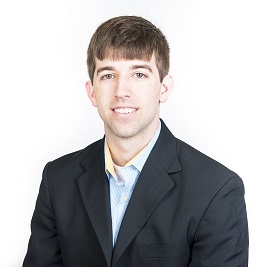Articles
CTP Exam Tips: Taking the Test
- By Greg Lattanzi, CTP
- Published: 12/30/2015
 You’ve committed to taking the exam, put in the necessary time, worked on your weak spots, and the test day is almost upon you. What can you expect in the last few weeks prior to the exam?
You’ve committed to taking the exam, put in the necessary time, worked on your weak spots, and the test day is almost upon you. What can you expect in the last few weeks prior to the exam?
Leading up to the exam I felt much better regarding my knowledge in treasury. I could list off different regulations, acts and governing bodies with ease. However, I had to fight to keep the same focus I had when my pre-exam score was 56 percent. The last few weeks I had before the exam were spent continually polishing up on topics that I still felt needed more attention. You’ll be able to identify what still needs work based on practice exams and the posttest you’ll take online with the AFP Treasury Learning System. I saved the posttest for two weeks from my actual exam to act as a measuring stick for my progress. Be sure your time per question is fast enough that you’ll be able to give every question a fair evaluation. Also, be sure that you are now comfortable applying the concepts to actual scenarios for the exam. If you aren’t, this may be a sign you need to polish up on that concept.
After passing the posttest, I began to back off studying a bit. I had determined through my scores and how I was feeling that I was beginning to peak and I wanted to still be at my peak when I tested. Being burned out on the information is not a successful strategy to take the exam. It was at this point that I also buckled down on the formulas that were presented throughout the text. Being a recent graduate, I remembered some from class but others were completely new to me. Also, if you don’t already know what the Cash Conversion Cycle is or how it operates, learn it backwards and forwards. One person I met at the 2014 AFP Conference joked that he could guarantee us that it would appear at least five times in some form or fashion on the exam.
The Saturday before my exam, I drove the route to my exam location and was fortunate I did, as there were signs indicating upcoming construction during the next few weeks. You don’t need any surprises on exam day. The five weekdays leading up to the exam, I studied 30 minutes to an hour per day with one module per day. That Friday, I was grateful to essentially get kicked out of the office an hour before I was supposed to in order to allow me some time to relax before my exam that next morning. This was a benefit of keeping my coworkers in the loop as I’ve mentioned previously. As you’ve no doubt heard before, eat a good meal and get some sleep. I also set two alarms just in case something happened to one—once again, no surprises.
Saturday June 27—game day. I woke up early, ate a basic breakfast and drove through a downpour to the testing site using an alternate route to avoid the construction. Be sure to bring only the basics in the testing center, as you have to lock them up anyway. I left my cell phone and wallet in the car except for my photo ID, which is required. I was the second person to show up at the testing center and was quickly back in the room taking the exam. When taking the test, remember to:
- Breathe
- Read the questions thoroughly
- Ignore other people as they could be taking other exams
- Use the mark for review button to circle back and check on questions you may not have been fully confident on before.
Once done, submit and wait for the proctor to come get you. They’ll give you your results as you leave and that will be that. I wish you all the best of luck and please let me know if I can be of any further assistance during your preparation for this exam.
Greg Lattanzi, CTP, is a treasury manager for a major grocery retailer.
Copyright © 2024 Association for Financial Professionals, Inc.
All rights reserved.

